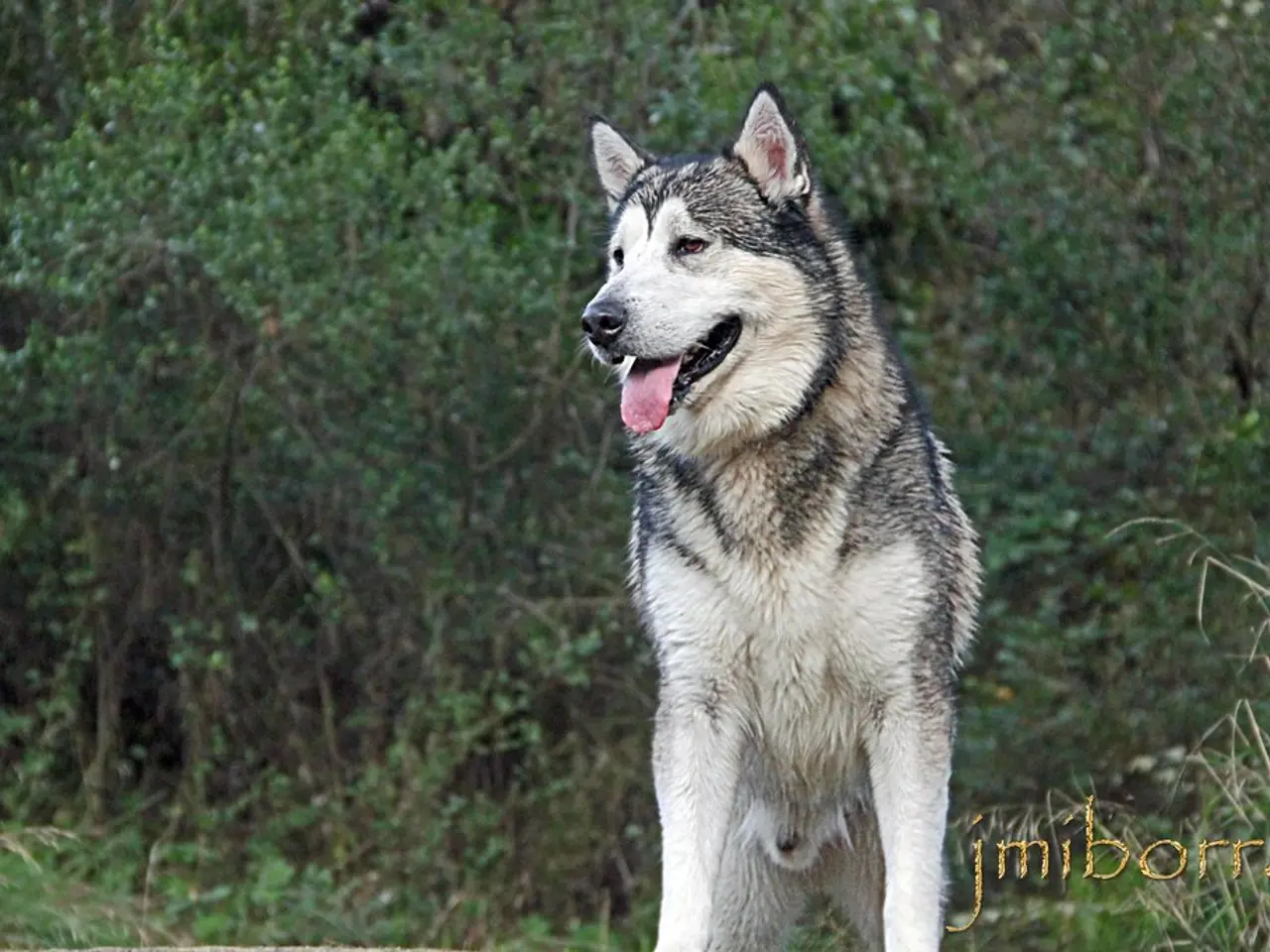Wolf hunting advocated by Brandenburg
In the heart of Germany, the state of Brandenburg is grappling with a growing population of wolves, causing tensions with livestock owners and rural communities. This surge in wolf numbers, reflecting broader recovery trends across the country, has sparked debates on managing the predators while maintaining a delicate balance between ecological goals, agricultural interests, and coexistence strategies.
At the centre of the debates are proposals for sustainable hunting quotas, improved herd protection measures, and fostering coexistence. The Brandenburg government aims to control the wolf population through regulated hunting, with the objective of limiting and preserving the population. However, the ministry's plans to "remove" 15% of the wolf population annually, potentially increasing to 35%, have raised concerns.
Axel Kruschat, state manager of the nature conservation organization BUND, disputes the ministry's population estimates, suggesting a maximum of 600 wolves in Brandenburg is more realistic. He cautions against mixing hunting quotas with the quota hunt, calling it "perfidious." Kruschat believes that a quota hunt could worsen the situation for livestock farmers, leading to more "problem wolves" that target easier prey.
Environment State Secretary Beyer announced plans to address problem wolves, including leaving carcasses of killed livestock for two nights, guarded by hunters, to allow for the removal of problem wolves. However, this approach has been criticised by some as potentially endangering a hunter's hunting license if participation in a quota hunt is based on artificially inflated numbers.
The conservation status of the wolf population in Brandenburg is relevant for evaluating its long-term survival. The EU reports the status as "unknown." The Brandenburg State Office for the Environment estimates 58 wolf packs in the state, a method that is criticised by the ministry as insufficient.
Solutions emphasise the use of preventive methods such as electric fencing, livestock guardian dogs, and better husbandry practices to reduce wolf attacks. These are favoured by conservationists and many locals as non-lethal methods to promote coexistence, which has increasing support as the wolf becomes a permanent species in German wildlife.
The issue is politically sensitive, with local coalitions in Brandenburg balancing conservation goals and agricultural interests. Coordination between federal and state governments is essential as policy evolves. Public opinions vary, with some demanding stronger controls and others advocating for wolf protection and coexistence strategies.
Germany adheres to EU and international conventions protecting wolves but is adapting policies to current realities, including considering regulated hunting within legal limits and enhancing compensation schemes for farmers. The debate is far from over, with a "large wolf forum" hosted by the Ministry of the Environment scheduled for September, where the culling quota will be a central topic.
[1] International Union for Conservation of Nature (IUCN), European Union (EU), Bern Convention, Convention on International Trade in Endangered Species of Wild Fauna and Flora (CITES)
- The controversial culling quotas for wolves in Brandenburg, Germany, have sparked debates in the realm of environmental-science, policy-and-legislation, and politics, as officials grapple with balancing ecological goals, agricultural interests, and coexistence strategies.
- In light of the politically sensitive issue of wolf management, proponents of preventive methods such as electric fencing, livestock guardian dogs, and better husbandry practices argue for their implementation to reduce wolf attacks and promote non-lethal coexistence strategies, aligning with the general-news trend of wolf conservation.
- The debate surrounding wolf management in Germany needs to consider various international agreements, including those from bodies like the International Union for Conservation of Nature (IUCN), the European Union (EU), the Bern Convention, and the Convention on International Trade in Endangered Species of Wild Fauna and Flora (CITES), as the country adapts its polices to current realities while ensuring the sustainable survival of the wolf population.








